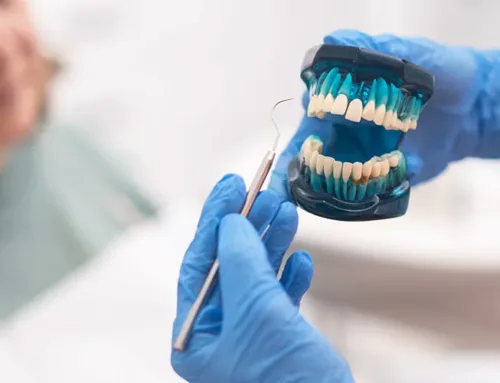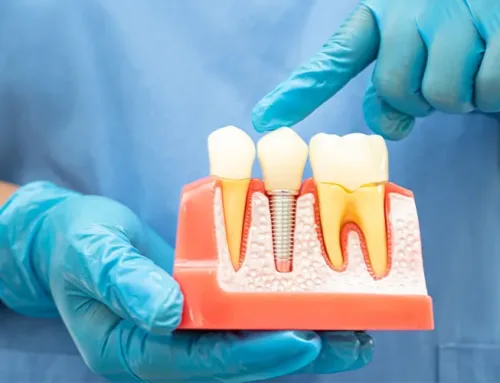8 Important Facts About Dental Implants
December 9, 2020
For individuals who are missing teeth, dental implants are an excellent replacement option, as they act and function like natural teeth but come with numerous benefits that go beyond their aesthetic value.
If you are considering dental implant surgery, read on for 8 important facts about these surgical fixtures.

1. Dental Implants Are Virtually as Strong as Natural Teeth
Several factors make dental implants virtually as strong as natural teeth. First, they are made out of titanium, an extremely strong metal that is lightweight, non-toxic, and is corrosion-resistant. Second, dental implants create a secure connection by fusing with your jawbone. This forms a similar bond to a natural tooth root. Finally, they can withstand more pressure than natural teeth and are just as durable. Dental implants rarely break and will not move or slip with biting, chewing, brushing, or flossing.
2. Dental Implants Are Easy to Take Care Of
Dental implants rely on having healthy gum tissue around them, so the only thing you need to do is clean them the same way you would with your natural teeth. Use low-abrasive toothpaste, clean twice a day with a soft-bristle toothbrush, and floss daily.
You should also use a mouth rinse and a water pik to reduce overall bacteria where flossing and brushing cannot reach.
3. Dental Implants Guard Against Bone Loss
By replacing missing teeth with dental implants, bone loss can be avoided. The dental implants will help keep the natural shape and appearance of your jaw while mimicking the function of a natural tooth.
Since dental implants integrate directly into the jawbone, they provide the jawbone with the stimulation it needs to maintain itself.
This, in turn, helps keep your jaw healthy and maintains the entire structural integrity of the mouth.
4. Dental Implants Provide Oral Health Benefits
They preserve natural tooth tissue that would be removed with conventional bridgework, as your other natural teeth remained untouched.
- Dental implants reduce bone deterioration from tooth loss by stimulating the jawbone.
- Dental implants preserve adjacent natural teeth by reducing overall load bearing on these teeth.
- Dental implants restore the jawbone structure leading to better overall oral health.
They provide easier access between teeth, making it easier to floss and brush away food debris and bacteria.
5. Dental Implants Act as Artificial Roots
With your natural teeth, the root of the tooth is what anchors it in place. A dental implant replaces the root of a missing tooth and acts as an anchor by fusing with the jawbone.
It is considered a fixed anchor for the replacement tooth (crown), which is fastened to the top of the dental implant.
6. Dental Implants Are For More Than Just Looks
While dental implants do have the appearance of natural teeth and help you maintain that full-tooth smile, they affect far more than just your looks. Dental implants improve overall oral health by preventing further tooth loss, jawbone deterioration, and full facial collapse.
They maintain jawbone stimulation and density, so your adjacent natural teeth are protected from tooth loss.
7. No More Cavities With Dental Implants
Dental implants are not subject to decay because they are made out of metal alloys.
They are attached to the interior of the jawbone and do not come into contact with any type of bacteria, permitting that you are completing regular dental hygiene care.
8. Dental Implants Treat the Loss of Teeth
If you were to not replace a lost tooth with a dental implant, the teeth adjacent to the missing tooth would be at risk of falling out. When a tooth is lost, the jawbone underneath it deteriorates because it is no longer being stimulated. This can weaken the bone density in the area and cause other teeth to fall out.
Dental implants treat the common problem and vicious cycle of tooth loss by maintaining the jawbone.
Get started with Dental Implants by scheduling an appointment with us. Contact us or give us a call at (813) 333-1922.








